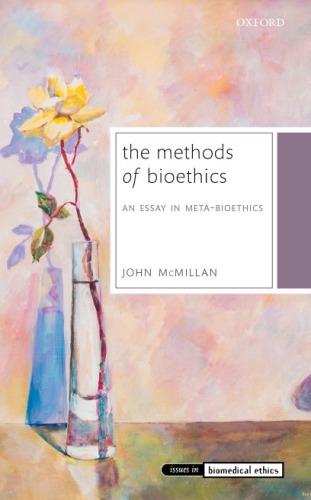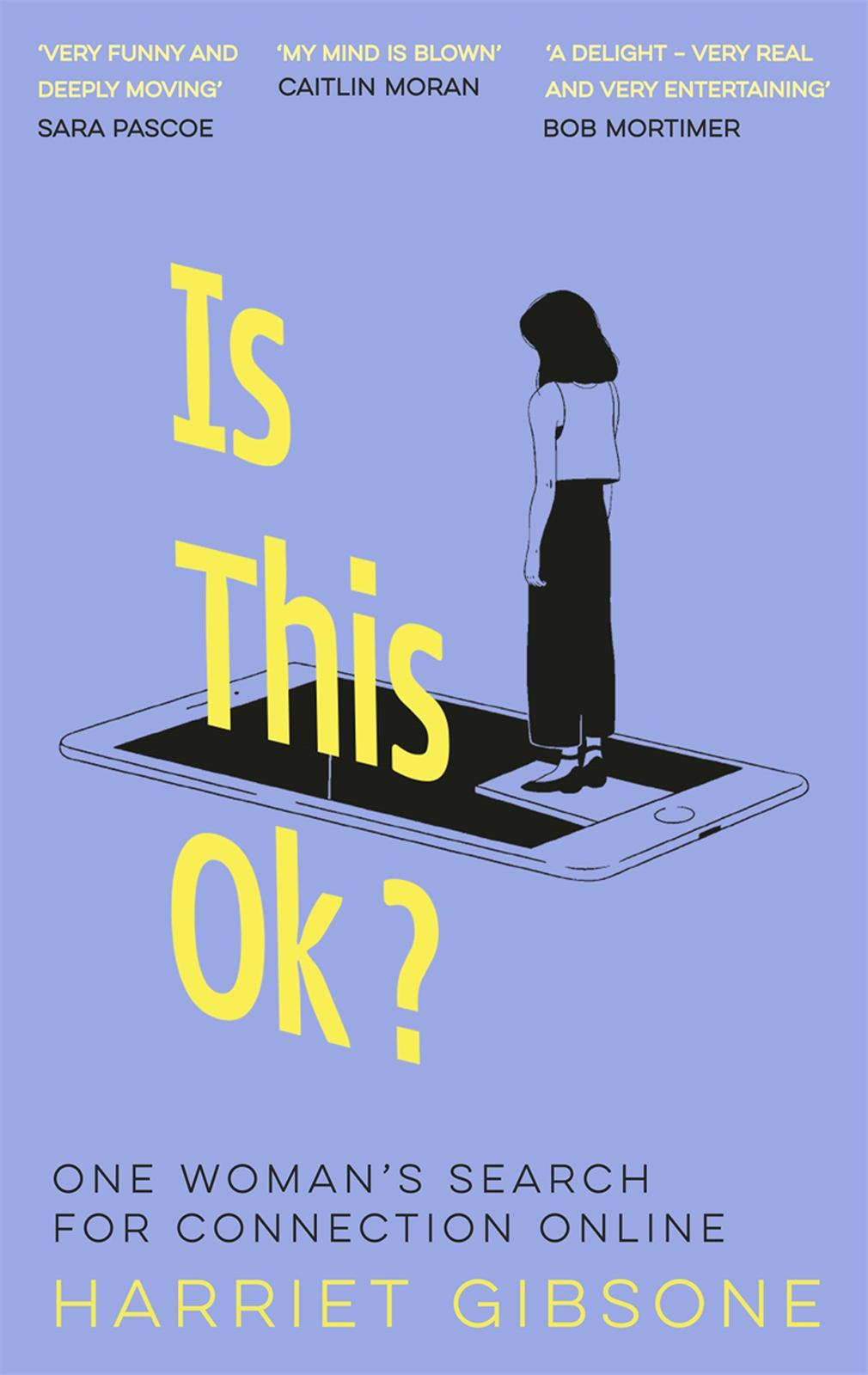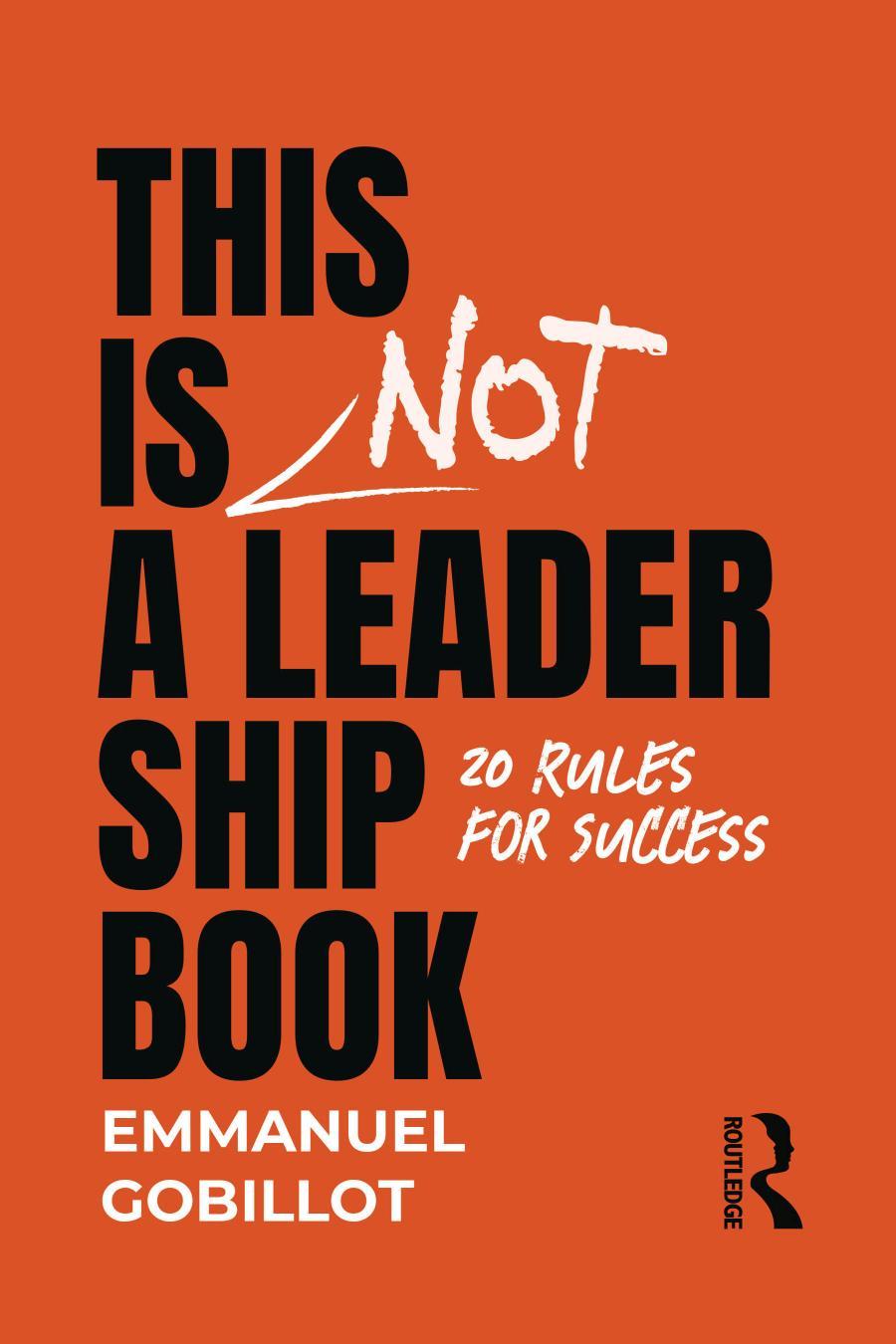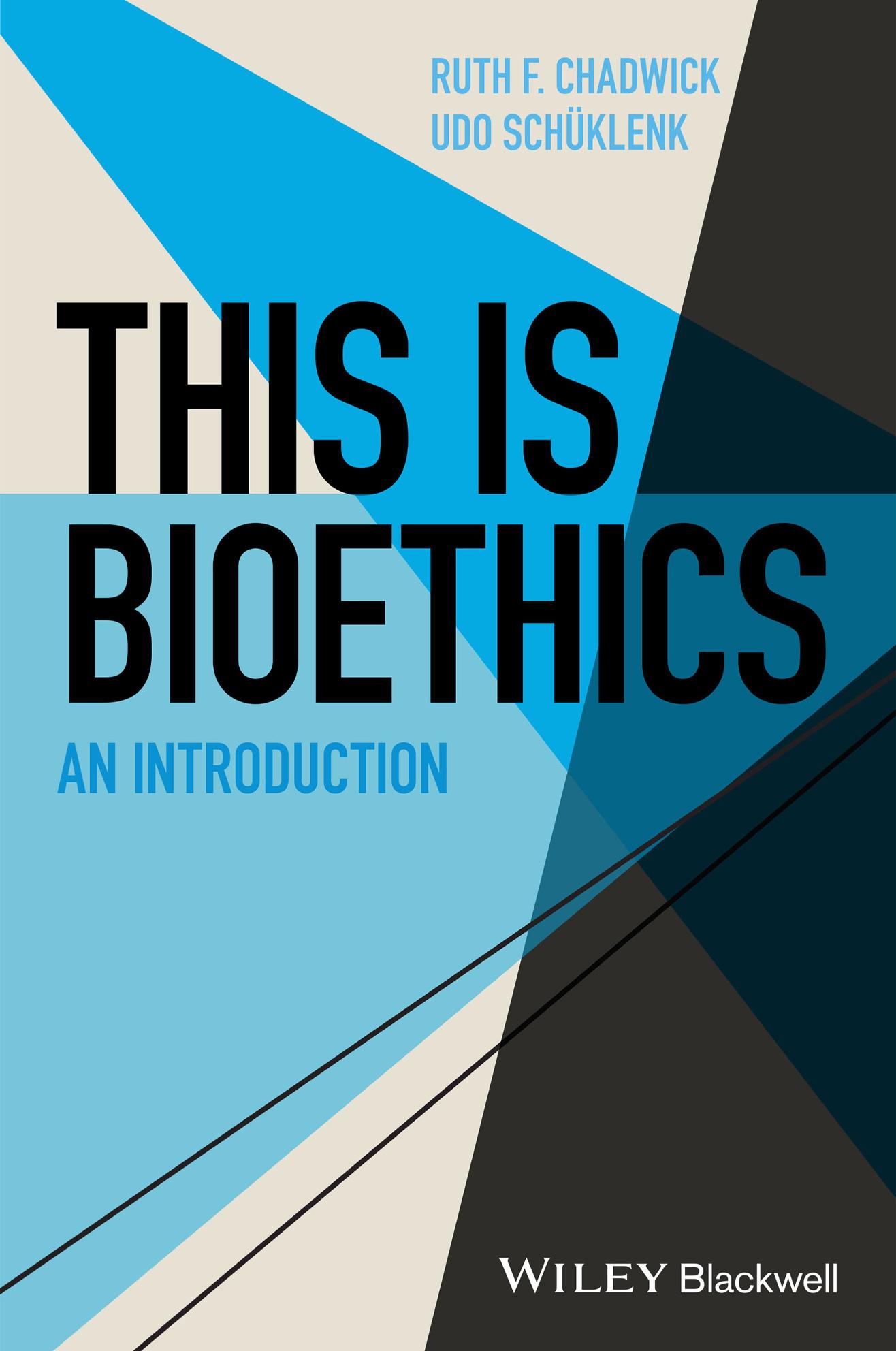INTRODUCTION TO ETHICS
Imagine you were running a medical non‐governmental organization (NGO) established to preserve the lives of poverty‐stricken people in resource poor countries. Your NGO is also usually among the first to provide emergency assistance in case natural emergencies such as tsunamis strike. However, you did notice that agencies evaluating your efficiency1 give you a below‐average ranking. That is a worry to your fundraising staff, mostly because you rely on donations and such ratings are said to impact eventually negatively, on your capacity to raise cash. You investigate what the problem is, and it turns out that the ratings agency is critical of your policy of responding mostly in cases of high‐impact disasters such as earthquakes, floods or civil wars, because they invariably require a highly resource intensive intervention. The agency’s verdict is that, on the same capital outlay, you could preserve more lives in developing countries if you aimed at establishing medium‐ to long‐term health delivery solutions, including setting up primary health care facilities, beginning vaccination programs, and other such relatively low‐cost means. Chartering private jets to fly emergency teams in response to disaster also preserves lives deserving to be rescued, the ratings agency says, but it demonstrably results in a substantially lower number of lives preserved than you could preserve if you dropped such actions in favor of working toward better health care delivery infrastructure in the countries you usually serve.
So, if your objective is to preserve lives in developing countries, the ratings agency might be correct in saying that you only preserve a suboptimal number of lives. You could do better. Should you change your policy
This Is Bioethics: An Introduction, First Edition. Ruth F. Chadwick and Udo Schuklenk. © 2021 John Wiley & Sons, Inc. Published 2021 by John Wiley & Sons, Inc.
though? After all, what the ratings agency proposes implies, if you were to act on it, is that those in most dire need, say those living in war‐torn countries with minimal health care infrastructure, should be toward the bottom end of your list of priorities, because assisting such people would cost more – per life preserved – to succeed. All other things being equal, more lives could be preserved if the NGO focused on preserving not those most in need but perhaps those whose lives are also threatened but who could be helped with the deployment of fewer resources. Should we only care about the number of lives preserved then, or do other factors matter, too, such as for instance that some people, possibly due to no fault of their own, live in particularly abysmal conditions? Should we factor in the amount of resources required to nurse such people back to a life that would permit them to live independently? Should the age of the to‐be‐rescued matter? Should it matter whether they have a family dependent on their support? Questions such as these are fundamentally ethical questions. And this chapter is about ethics, it is about right and wrong, good and bad, and how we can go about judging alternative courses of action that might be available to us.
What are the fundamental purposes of ethics then? Unsurprisingly, one of the purposes of ethics is to offer us clear action guidance when we are faced with a particular ethical problem. Of course, action guidance alone is not sufficient, or else an ethicist telling us what we ought to do is not much different to what a preacher or a taxi driver, engineer or medical doctor could tell us. Anyone can admonish us to do this or do that when faced with an ethically challenging situation. All of us almost certainly would have a view on what the NGO chief should be doing. In fact, most of us would probably happily add our two cents worth of opinion when asked what we think the NGO chief should do, policy wise. Thinking about what she ought to do engages with ethics. That takes us to the second objective of ethics. It is to do with the normative justification for the advice given. The preacher’s advice would derive its authority from the claim that she knows what a higher authority (say a God) wants us to do. Of course, many people today are atheists2 or agnostics3, and many of those who are not atheists hold a large number of different deities dear to their hearts, all with competing action guidance derived from their respective sources of godly wisdom. For all we know, the taxi driver and engineer might just reply that that is how they feel, or possibly even think, about the problem at hand. Let us leave aside, for a moment, that in ancient Greece there were no taxi drivers or engineers as we understand them today. During those times their approach 1.3
to ethics would have led to them being labeled as Sophists4, that is a group of philosophers who subscribe to the view that there are no objectively right or wrong answers to ethical questions, and that answers to ethical questions are at best reflective of someone’s subjective, strongly held beliefs or feelings. What gave way to the birth of modern ethics were philosophers like Plato5 and his teacher Socrates who both believed that we can actually give right or wrong answers to questions about what is ethically good or bad. We will return to their take on ethics in a moment. How might the medical doctor in our example respond to the ratings agency’s ethical challenge? Trying to do better than the Sophists of the world, she could refer to guidance documents issued, for instance by her national medical association’s ethics people6, or those issued by the World Medical Association7, a worldwide umbrella organization of national medical associations, or possibly the World Health Organization8. But what if these organizations have actually omitted to address the problem at hand in their guidance documents? And, even if they haven’t, quotes from a document don’t constitute an ethical justification. What if the document quoted got it wrong? It turns out, we have good reason to be skeptical about famous historical medical guidance documents such as the Hippocratic Oath9. Robert M. Veatch explains why the Hippocratic Oath isn’t a document medical professionals ought to aspire to. According to Veatch just about everything is wrong about it, from its pledge to questionable Greek deities to a cultish understanding of medicine as a secretive practice to practical guidance that prioritizes individual patient interest always over the greater good of the society (Veatch 2012a, 10–29). To put it in Veatch’s own words, ‘the Oath is so controversial and so offensive that it can no longer stand alongside religious and secular alternatives. […] The Hippocratic Oath is unacceptable to any thinking person. It should offend the patient and challenge the health care professional to look elsewhere for moral authority’ (Veatch 2012a, 1). Veatch tells us, somewhat reassuringly, that the Oath today is used in so many variations in the world’s medical schools that sometimes only fragments of the original document seem to remain (Veatch 2012b).
Be mindful that even if we agreed with the content of the Hippocratic Oath or a modern version of it, and even if they actually provided us with guidance for the problem under consideration, we would again have to take it on authority that we should go about the NGO’s problem in one particular way and not in another, unless there is an ethical justification provided why we should do what it admonishes us to do. Given that in our scenario almost certainly a lot of people would disagree with whatever it is that is
being proposed, policy wise, it is important that we get our justification right. Here is where ethics’ second purpose comes in: In addition to providing us with action guidance, it must also provide us with a reasoned justification for the guidance given.
As we will discover, there exist a fair amount of competing ethical theories, some more influential than others, that succeed with varying degrees of success both on the action guidance as well as on the action justification fronts. How should we decide then, which one, or which set of them to adopt for our own purposes? Is it ok to use one set of theories for one type of problem and another set of theories for another type of problem? Couldn’t we choose virtue ethics for decision‐making at the hospital bedside, but decide to go with utilitarianism for matters of resource allocation decision‐making? But why should we do that, as opposed to just the opposite? Could there be a meta‐theory telling us which theoretical approach to deploy under what circumstances? Or must we determine which theory is the right one and try to abide by its guidance as best as we can, even if some of that guidance is turning out to be deeply counter-intuitive? Well, these are questions about the nature of ethics; they ask whether there can be a true ethics, whether ethical statements must be of a particular kind, whether they can be objectively true or false, or whether they ultimately boil down to statements expressing our feelings. These and other questions are typically analyzed by meta‐ethicists. They don’t create ethical theories, rather they create theories about ethics. There are also legitimate questions about the extent to which ethical theories truly lend themselves to be ‘applied’ in some sense or another to problems such as the one mentioned at the beginning of this chapter. We will not engage in this sort of theorizing about ethics in this chapter, with the exception of a few paragraphs on ethical relativism. The reason for this is that the discussions driving meta‐ethics are quite technical in nature, and by and large there is no obviously correct solution to many of its controversies. Even in the absence of final answers to many of these questions, however, it is still quite possible to undertake ethical analyses. As we will see throughout this book, some arguments are more plausible than others; certain types of argument, such as for instance slippery‐slope based arguments, are almost always flawed, and so on and so forth. However, you can easily read up on meta‐ethical theories elsewhere. (McMillan 2018) A wonderful source of superb on‐line Open Access content, written usually by the some of the best philosophers around, is the Stanford Encyclopedia of Philosophy. Check, for instance its entry on Theory and Bioethics10 (or Singer 1991, Part VI: The Nature of Ethics).
Bioethics is specifically concerned with normative issues in the biomedical and life sciences. Bioethicists hail these days from many different disciplines, including theology, law, medicine, sociology and many others. Think of typical problems bioethicists analyze in their research: Should we permit editing of the human genome? Is it acceptable to use sentient animals in clinical research? Is abortion wrong? Should we decriminalize assisted dying in some form or shape?
Theologians will be able to tell us what a respective religion would make of the problem at hand. Legal experts could tell us what the law currently says with regard to any of these issues; they might even bravely venture into an analysis suggesting that the law ought to be changed, if they find it to be a violation of their country’s constitutional values. Health care professionals should be able to enlighten us with regard to what their professional values have to contribute to these difficult questions. Sociologists do what sociologists do best, they will ask other people, say taxi drivers, philosophy students, or a representative sample of a given group of people, what their take is on these questions. None of these discipline‐specific responses is capable of enlightening us in a moral or ethical sense. The problems flagged earlier can all be read as asking fundamental ethical questions, namely: Is it ethical to alter the human genome? Is it moral to use sentient animals for clinical research purposes? Is abortion immoral? Is the criminalization of assisted dying ethically defensible? Bioethics relies first and foremost on ethics to sustain reasonable defensible answers to these questions. However, it is not the type of ethics that many armchair philosophers would recognize as traditional philosophical ethics. There can be no doubt that bioethical reasoning is not as deep or watertight as, for instance, meta‐ethical reasoning aims to be. Rather, with few notable exceptions, it aims to use the normative frameworks, that we will be looking at, as a rough guide indicative of where, say a utilitarian analysis would lead us when we consider the morality of abortion and infanticide. These frameworks are also useful as tools of critical analysis. They offer us some pretty good guidance and guidance justification on the types of criteria that we might apply when we go about asking, for instance whether abortion is a morally good or bad thing. They could even help us taking a considered ethical stance on markers of fetal development that are frequently argued over by activists and legislators alike. Say, does the moment of conception confer moral standing on the developing human? Or, does the capacity to feel anything matter? Does it matter whether an embryo would be capable of surviving outside the pregnant woman’s womb? These are the types of questions that ethical theories can indeed shed new light on.
Before we try to get a quick overview of major ethical theories that exert today a significant influence in bioethics, let us briefly address a few other preliminary issues, namely, that of the place of religion in ethics, the relationship between the law and ethics, the challenge ethical relativism poses particularly in the context of bioethics, and the not completely irrelevant question of why we should bother being ethical to begin with.
1.1 Religion and Ethics
In the 1850s, the American Medical Association (AMA) was busy developing the content of its Code of Medical Ethics. At the time James L. Phelps, an influential Christian doctor in New York, tried to insert in this code a professional obligation for doctors to preach the truth of the Christian gospel. He referred to ‘the paramount duty of the profession to their patients not only as regards their body in disease, but also the higher interests of the immortal soul. And hence, also the just claim of religion, the great anaesthetics of the immortal mind, to be considered an element of medicine or the healing art’ (Baker, 2013, 181).
His fellow doctors at the AMA rejected his approach. They aimed instead for a secular code of medical ethics, and also a secular interpretation of professionalism for its members. Their reasons were entirely pragmatic, as you will notice when you read their rationale: ‘the principles promulgated by this code have been assumed as a common ground upon which every member of the Association may stand, without reference to the distinctive principles or doctrines which distinguish the various religious societies existing among the vastly extended and diversified population of our country’ (Baker, 2013, 181).
There are a number of problems with religious approaches to ethics. An obvious one is that many competing religions and claims about God or gods exist. It is in the nature of these claims that they cannot be tested. They rely entirely on belief. Given that we cannot know which of these gods – if any – is the right one, we are better off, in assuming with Plato that even if a God or gods exist, they would also need sound ethical reasons for their ethical judgments. Many people doubt the very idea that a God exists, mostly because of the enduring nature of the terrible evil that persists in the world. This just does not seem to gel well with the idea of an all‐knowing, all‐powerful and good God of most monotheistic religions. In any case, we do not have to settle the difficult question of whether a God or gods exist, thanks to an ancient Greek philosopher, Plato.
Plato created about 380 years before reportedly the historical Jesus was born a now‐famous dialogue aimed at addressing various questions to do with the relationship between God or gods and ethics. The dialogue is called Euthyphro11 and plays out between Plato’s teacher, Socrates and the said Euthyphro. The story essentially takes place at a plaza in front of a court house. Euthyphro busily prosecutes no less than his father for manslaughter committed on a murderer.
Euthyphro’s relatives thoroughly disagree with his actions. When Socrates (i.e. Plato’s protagonist) questions Euthyphro, he replies, criticizing his relatives, ‘Which shows, Socrates, how little they know what the gods think about piety and impiety.’ The dialogue goes on for some time, and during the course of it Socrates makes among others a crucial point that is salient to the question of the relationship between religion and ethics: He asks whether something is good because the God or the gods approve of it, or does God (or do the gods) approve of it because it is good. This is a crucial question, because if something is good only because God or the gods approve of it, ultimately what is good would depend entirely on God’s or the gods’ preferences. For all we know God (or the gods) could have approved of Euthyphro’s actions. Slavery might be ok, too. This take implies that the act in question is neither intrinsically good nor bad, because it is entirely dependent on what God’s or the gods’ take is on the issue at hand. It is doubtful that you consider this answer persuasive. Surely, if God or gods exist, they need to have some sort of ethical reason for saying that something is morally wrong. Their answer cannot be completely arbitrary.
This leads us to an alternative answer to the question. That answer suggests that some actions are good or bad as such, and that we are able to evaluate such acts by means of using the tools of ethical analysis. Or, as Gordon Graham suggests, ‘Plato’s arguments in Euthyphro seems [sic!] to show that … religion cannot logically serve as a ground for morality’ (Graham 2004, 185–188).
There are other problems, too. Most religious authoritative scriptures, such as for instance the Qur’an12 or the Bible13, do not actually provide us with clear guidance to address most ethical questions that we face during our lives. Even if, miraculously, all of us would agree tomorrow that one of these two documents, and not the Hindu’s Bhagavat Gita14 is the true God’s source of wisdom, we would discover that it actually would not help us to solve the ethical problem our NGO‐manager faces. We might as well go back to Plato then and try to figure out ourselves what is right and what is wrong, what is a good action and what is a bad one.
To what extent then will religious arguments feature in this book? Not to a great extent. It is true that extensive literature, for instance on the stances of Roman Catholicism, Judaism and Islam on assisted dying, exists. However, these kinds of arguments will not be dealt with in great depth in this book. The main reason for this is that these kinds of arguments are only of relatively uncontroversial moral significance to a subset of people, namely those who subscribe to the views expressed on this issue in the authoritative guidance documents published by these faiths. Obviously, Catholic arguments derived from the Bible only matter to Catholics or other Christians who accept the authoritative status of the Bible. The same holds true for Jewish and Muslim believers and their religious texts. Lisa Sowle Cahill, a professor of Christian Ethics, got it right when she wrote15 (Sowle Cahill 1990):
Public bioethical discourse (or public policy discourse) is actually a meeting ground of the diverse moral traditions that make up our society. Some of these moral traditions have religious inspiration, but that does not necessarily disqualify them as contributors to the broader discussion. Their contributions will be appropriate and effective to the extent that they can be articulated in terms with a broad if not universal appeal. In other words, faith language that offers a particular tradition’s beliefs about God as the sole warrant for moral conclusions will convince only members of that tradition.
What we are looking for, therefore, are reasons that can best be described as public reasons16. Public reasons don’t rely on us making metaphysical assumptions about gods, afterlives or any number of other beliefs requiring a significant leap of faith, so to speak. Instead they aim to persuade us by way of arguments that reasonably educated people from different cultural and religious backgrounds or other ideological persuasions can accept (Quong 2013). This approach is much in line with thinking going back to the seventeenth century, drawing a clear line between religion and the secular state. The state by necessity must remain neutral with regard to religious affairs, it cannot privilege one religion over another (Locke 1689). That way the citizens’ right to hold their own religious beliefs is protected. If the state decided to privilege one religious viewpoint over another, inevitably unjust discrimination of the not‐privileged religious point of view would follow. This view is supported by many judgments passed by the highest courts in various countries. For instance, a Canadian Supreme Court judgment notes, ‘the State is in no position to be, nor should it become, the arbiter of religious dogma’ (Syndicat Northcrest v. Amselem 2004).That makes
perfect sense; how could judges possibly adjudicate conflicting views between religious dicta or even within a religion? They are not trained to do so. Accordingly, secular societies remain neutral vis a vis religious points of view, and public discourse relies on public reason based arguments. We will do the same in this book.
Let us turn now to the complex relationship between the law and ethics.
1.2 Law and Ethics
Although medical lawyers work on bioethical issues, this is not a book about law. Nevertheless it is important briefly to consider the relationship between law and ethics and also the difference between legal and moral rights. Bioethics is a field in which reference is frequently made to ground‐breaking legal cases (e.g. Roe v Wade in the United States), and to relevant legislation such as the Mental Health Act in the United Kingdom. To say of a proposed action ‘That would be unlawful’ is, however, not a knock‐down argument against it.
Although you might hope that the law is always ethical and/or just, reality quickly proves otherwise. The Nazis had laws discriminating unjustly against a whole range of German citizens at the time. Just think of their 1933 Law for the prevention of Hereditary Diseased Offspring. The Nazis used this law to justify the forcible sterilization of tens of thousands of Germans, even of many who did not suffer from hereditary conditions (Proctor 1988, Chapter 4). Apartheid South Africa had racist laws in place that one would hope will never reoccur on this planet. And before we get too optimistic about the state of laws in democratic societies, the Nazi sterilization laws were at the time widely applauded by eugenicists with direct lines to governments in many democratic countries. In fact, it turned out to be difficult to prosecute certain crimes committed against vulnerable people as war crimes, because similar laws were at the time in effect, for instance in the USA (Proctor 1988, 117).
In the light of these observations, several questions arise: (1) what exactly is the difference between ethics and law? (2) Should the law enforce morality? (3) How should individuals, especially health professionals, behave when confronted with a law they believe to be unjust?
1. You may see that ethics and law have certain similarities: they are both social devices to make it possible for people to live together in relative harmony and for society to function. They both offer mechanisms for
dealing with areas of life where interests conflict. Of course, the sanctions that the law has are much more far‐reaching than those of ethics, including criminal and civil proceedings, punishments and penalties. The sanctions that ethics has, however, are not negligible. While ethics relies on the power of arguments as far as its action guidance and justification are concerned (as opposed to legislation and precedent in the case of law), the power of persuasion can be considerable. Some have suggested that if there is a strong ethical consensus on a particular matter, say that slavery is bad, what likely would enforce this consensus – if there were no law prohibiting slavery – is societal pressure such as peer pressure. Societal disapprobation can be a very powerful instrument in the absence of legally enshrined norms in a particular matter. Arguably these societal norms can be a force for good as well as a force for bad depending on the circumstances – for example disapproval of voluntary childlessness as ‘selfish’ may make it difficult for people to choose that. You will surely be able to think of other possibilities.
In addition to sanctions, law and ethics differ in scope. Here is what the American Medical Association has to say on the subject of the difficult relationship between law and ethics: ‘Ethical values and legal principles are usually closely related, but ethical obligations typically exceed legal duties.’ Although there is clearly some overlap where we regard actions as both morally wrong and rightly prohibited by law, such as violence against the person and theft, morality covers a much wider area of our relationships with each other, with other species, and indeed our responsibilities for our own health. There is a question about how far the law should extend into policing the moral sphere. Think of examples such as drug use, sexuality, and smoking.
2. Should the law, then, be designed to enforce morality? A lot of ink has been spilled in response to this question. The American Medical Association probably got it right: in a good society ethical values and the law should be reasonably closely aligned. There is a potential ambiguity here, however. Some people might think it important that the law is attuned to the social values prevailing at the time (which may be discriminatory as in the examples above), rather than to what can be justified by ethical argument. It is the latter that is relevant in the context of the present discussion. It is important to note, however, that the law can play an important role in changing attitudes. Outlawing discrimination, for example, as well as arguing against it from an ethical point of view, can have an influence in changing attitudes in the longer
term. So legalizing marriage equality may play a part in decreasing anti‐gay sentiments, for example.
Is there a criterion to aid us in deciding where the law should not intervene? A liberal legal philosopher, Joel Feinberg, argued some time ago that what he describes as ‘harmless immoralities’ should not be outlawed (Feinberg 1990). What are harmless immoralities? Basically they are immoralities that affect only the person who, being fully informed and cognizant of the relevant information, voluntarily engages in immoral conduct. This begs the question, of course, whether there can even be such a thing as a ‘harmless immorality’. It is worth noting perhaps that there are some kinds of ethical theories, going broadly under the term ‘consequentialist theories’ that deny that there is such a thing as a ‘harmless immorality’. To their mind only harmful conduct can sensibly constitute something immoral. Calling something a ‘harmless immorality’, on that account, would at best be considered a contradiction in terms.
3. It is always an open question whether the law has got it right on a given issue. This can put people in a difficult situation when they are confronted by a situation where they think the law is wrong. Think of examples of this, such as a doctor who thinks it would be right to prescribe a prohibited substance to bring relief to a patient, or to perform a termination of pregnancy in a society where it is unlawful. Or a doctor being required to participate in a torture program in the context of an oppressive dictatorship. The American Medical Association says:
In some cases, the law mandates unethical conduct. In general, when physicians believe a law is unjust, they should work to change the law. In exceptional circumstances of unjust laws, ethical responsibilities should supersede legal obligations.
The fact that a physician charged with allegedly legal conduct is acquitted or exonerated in civil or criminal proceedings does not necessarily mean that the physician acted ethically.
As we know, working to change the law can take a long time, and does not help in immediately pressing cases. In some circumstances, it can require significant personal costs. The arguments for such legal change, as well as the arguments concerning choice of action in difficult circumstances, are the proper subject matter of ethics. The fact that an action is unlawful, or legally required, is clearly an important factor, but not the conclusive one, in considering its ethical justifiability.
1.22
1.2.1 Legal and Moral Rights
You will find that in many an ethics debate arguments for or against a particular solution are framed in the language of rights. While the topic of rights is enormous and multidimensional, it is worth pausing at this point to reflect on the difference between legal and moral rights. Let’s think of examples. Abortion is an obvious one. Does the (legal) prohibition of abortion by giving (legal) protection to the fetus violate a woman’s (moral) right to control her body? Are our (moral) autonomy rights violated in societies where assisted dying remains criminalized? Almost certainly you will be able to add your own examples here.
Of course, rights exist in law when they are backed by legislation, contract or precedent. Both legal and moral rights may be described as negative or positive. The negative ones are rights not to be interfered with or prevented from doing something, such as expressing publicly an opinion that might offend others.
While such a negative right may require social resources to protect it, positive rights are generally more expensive in that they require resources. A positive legal right could be your entitlement to access welfare payments in case you become unemployed. Such a legal right only exists in societies where such a right has been established.
What do these kinds of positive and negative legal rights have in common? One commonality is that the state or some other clearly identifiable institution is going to back them up. The state will enrol you in its welfare program in case you register with the unemployment benefits program on your becoming unemployed. Similarly, in the free speech case: the state will not only not interfere with your offense causing sermon, it might even have to deploy police to protect your legal right to say what you wish to say. Enforcement then is a crucial feature of legal rights, so is their codification in law.
When we turn to moral rights, these are not backed up by law, but by argument. Of course, an argument that someone has a moral right to something may be used to argue for a legal right. A context in which the difference between negative and positive rights becomes very clear is in the context of reproduction. Think of the right not to be involuntarily sterilized (negative right) versus the right to assisted reproduction (positive). These can be regarded as moral rights which may also be backed up by law (but historically have not been in all times and places, as we have seen). Moral rights such as these can be the conclusions of moral argument. For example, an argument that there are moral reasons to give you a certain social good,
such as access to assisted reproduction, could conclude by using the language of rights, i.e., say that because of x, y and z, you have a right to it. It could, for instance, be argued on consequentialist grounds that it is good for society as a whole if individuals who cannot reproduce without technological have rights to access such assistance. On the other hand, there are certain moral views that take rights as the starting points, rather than the conclusions of moral argument. On such a view, however, it is negative rights that are typically regarded as starting points and prior to positive ones. For example, if we take as a starting point that humans are by nature autonomous beings, and that interference with an individual’s freedom needs to be justified, this might be expressed in terms of individuals having rights, period. It is not that they are given rights in order to promote some social good.
You may also want to look out for arguments which purport to show that other species have rights, and the different ways in which such rights are supported.
1.3
Ethical Relativism
Ethical relativist17 arguments take various forms, but those most commonly found in bioethics go along these lines: We should not judge today terrible things that occurred in other cultures and societies many years ago. After all, perhaps what we consider unethical today was considered perfectly above board in another age. And in any case, even if we disagree with the views and practices held at the time, we surely have no ethical proof akin to scientific proof, that what occurred in the past is truly and objectively wrong.
Bernard Williams famously described this take on ethical relativism as ‘vulgar relativism’ (Williams 1974–1975). He thinks it is vulgar, because it is obviously flawed. Those who declare that it is normatively wrong to form a normative judgment on the goings‐on in a different cultural context and/or time in history would seem to form a normative judgment that, if they are correct, they would not be able to form. They hold the view ‘that “right” (can only be coherently understood as meaning) “right for a given society”; that “right for a given society” is to be understood in a functionalist sense; and that (therefore) it is wrong for people in one society to condemn, interfere with, etc., the values of another society’ (Williams 1972, 20). In Williams’ view this “is clearly inconsistent, since it makes a claim in its third
proposition, about what is right and wrong in one’s dealings with other societies, which uses a nonrelative sense of “right” not allowed for in the first proposition’ (Williams 1972, 21).
In some ways this issue seems also to be a bit of a red herring. The important question is not whether something that occurred in the past was morally good or bad, even though that could have a bearing on, for instance the reparations questions in the context of slavery. Rather the important question is whether today when we need to make a normative decision on whether we ought to do a certain thing or omit to do a certain thing, it would be morally right or morally wrong to do so (Williams 1974–1975). What people have done a long time ago realistically cannot assist us in answering that question. Our context today will be very different from the context potentially hundreds of years ago. Our knowledge base is different, our values will have evolved, our resource situation will be different, and so on, and so forth.
Ethical relativists tend to make two distinct claims: There is widespread disagreement on ethical questions, and this disagreement is not merely a matter of historical distance as ongoing controversies about the morality of abortion, marriage equality for same sex couples and assisted dying demonstrate. This claim is empirically uncontroversial, but the meaning of this disagreement for the possibility of ethics is still subject to controversy. After all, we cannot possibly sustain – without trying – a stance that maintains that it will be always impossible to make moral progress on these issues. The second claim is more far reaching, it suggests that there is no objective, universal and trans‐historical truth in an ethical judgment. Rather ethical judgments are a reflection of their times as it were.
What can be said with regard to these claims? For starters, it might well be true that we have no ethical proof comparable to the kind of proof you would come across in logic or physics. However, consider this: Even in the sciences, scientific paradigms (i.e. scientific truths that have been taken for granted, sometimes for centuries) are replaced radically or evolutionarily by other paradigms. After all, that is the story of science! Scientific truth then seems a more relative matter than most people are willing to concede. However, demonstrably progress is made. Change usually occurs when the old paradigm can be proven faulty and a new paradigm is better able to explain and predict the phenomenon in question. There is arguably no equivalent to this in ethics. However, progress in ethics undoubtedly occurs, too. Today we pretty much agree that slavery is unethical, and we even agree by and large on the reasons for this conclusion. In some ways












